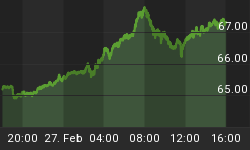Why Read: Because the referenced article is a well-balanced, well-written, very brief - albeit somewhat simplistic - overview of the economic models of the United States and the Eurozone. The article also speaks to China and briefly references Brazil and India.
Featured Article: An article Monday written by Robert Samuelson, a Washington Post syndicated columnist. In this article, Mr. Samuelson describes the economic model of:
-
the United States to be one of 'consumer-led growth;
-
the Eurozone to be based on the success of the euro and "slow but steady economic growth sufficed to support generous welfare states"; and
-
China to be an export growth model, supported by periodic government stimulus.
Mr. Samuelson expresses the belief that:
-
based on reduced family incomes, American's consumer buying is 'muted', and that to grow faster than it now is the United States will have to either:
- generate higher exports,
- experience increased business investment,
- promote greater growth through more government spending, or
- (presumably) achieve some combination of these things.
-
the assumptions underlying the Eurozone model were shattered in 2008; and
-
China's government stimulus programs "may have reached a point of saturation".
Mr. Samuelson then concludes that the long-term expectations of the populaces in these and other countries are being 'assaulted', and that as a result:
-
paths forward will be lengthy, difficult, and perhaps inconclusive; and,
-
could result in a form of 'stalemate' that itself would promote frustration and fear (presumably within the populaces of those countries).
Commentary: Again, this article is worth reading as a high level discussion of but some of the reasons that things in the U.S. and Eurozone 'are where there now are'. The article is not a detailed economic treatise, nor presumably is it intended to be. With respect to the things Mr. Samuelson suggests that might individually or in combination generate greater growth in America:
-
U.S. exports are dependent on viable and growing trading partners. For the time being at least, such 'trading partner growth is suspect';
-
for businesses to invest in the U.S. there has to exist a growing domestic and world market for the products of those businesses, and a favourable corporate income tax climate in the U.S. to encourage domestic business investment. Otherwise U.S. businesses will invest offshore in jurisdictions with offer lower labour rates and more favourable tax regimes. The latter currently seems to be the more likely prospective course of activity; and
-
the U.S. Federal Government is already bumping against its debt ceiling, and is not aggressively working to balance its existing budgets.
Little more needs to be said.
Sources of Global Economic Stalemate
Source: Real Clear Markets, Robert Samuelson, June 25, 2012
Reading time: 4 minutes















